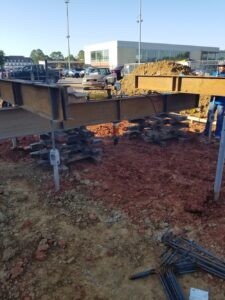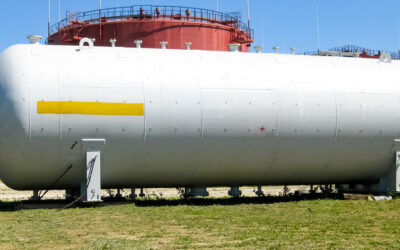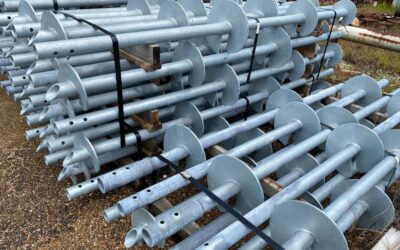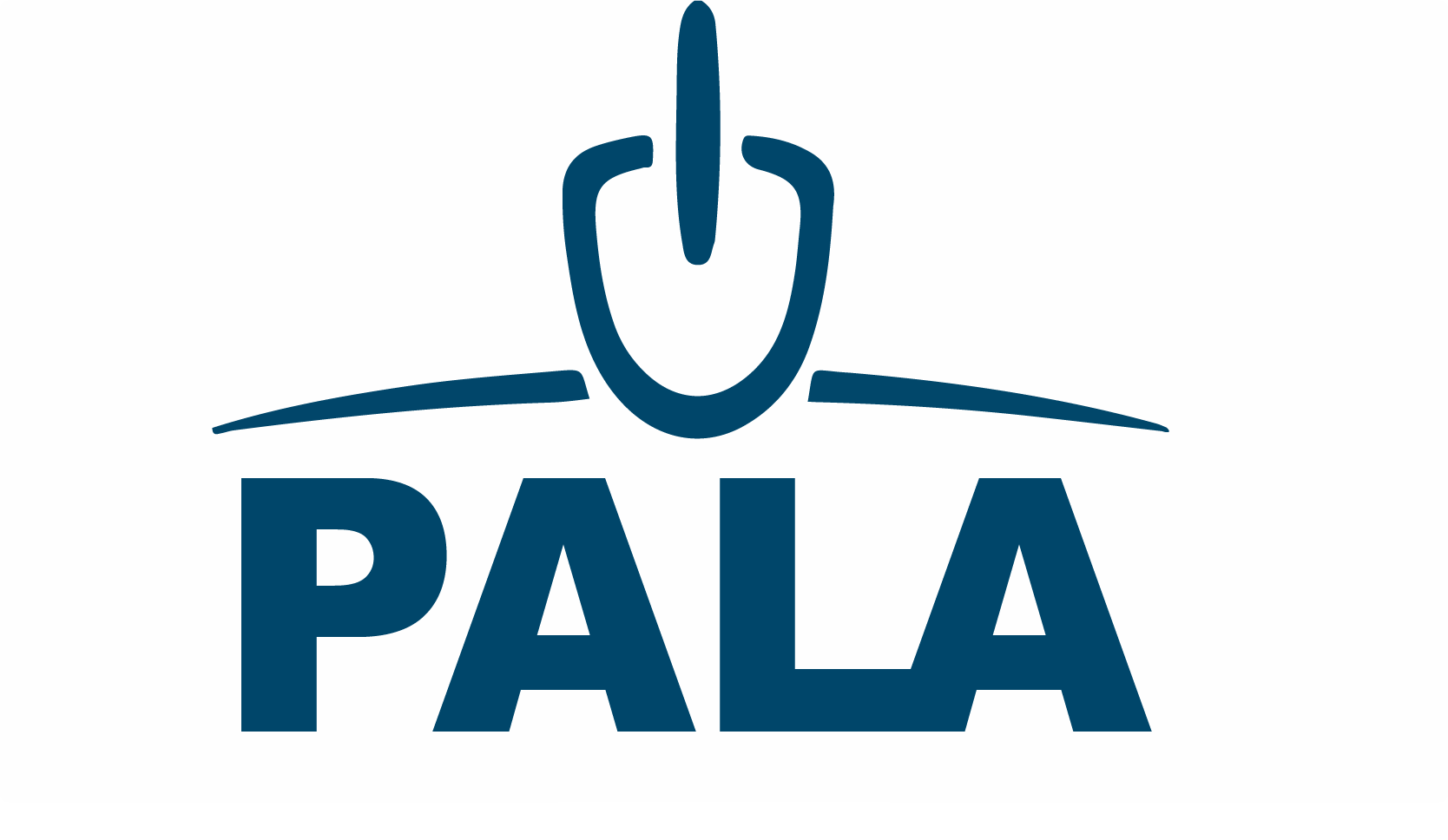If you’ve been looking into helical pile foundations, you may have seen mention of helical pile load tests. Load testing for helical piles can seem confusing, and it’s something we get a lot of questions about. To help tackle some of those questions, we’re breaking down the what, how, when, and why of helical pile load testing.
What is a Helical Pile Load Test?
A helical pile load test is a way to measure how a helical pile or other deep foundation elements will perform under an applied load. Essentially, it’s a way of testing whether the helical pile or pile formation will be able to bear the load necessary for the application. This is tested by placing the piles in their installed condition and using equipment to place a load on the piles.
Common Load Testing Methods
There are two main ways to load test helical piles: tension and compression.
In compression load tests, an axial load is placed atop the test piles, often using a steel reaction frame or hydraulic jacks. Then the soil displacement is measured to determine the pile or pile group performance. These methods are outlined by ASTM D1143/D1143M-20 Standard Test Methods for Deep Foundation Elements Under Static Axial Compressive Load.
In tension load tests, a load is generally applied to piles via test beams and timber cribbing. The testing procedures for this method are defined in ASTM D3689/D3689M-22 Standard Test Methods for Deep Foundation Elements Under Static Axial Tensile Load. This form of testing is often less complex and time-consuming than axial compressive load testing.
When is Load Testing Necessary?
Load testing may be required by regulations for some large projects, but it’s not always necessary for helical pile foundations. In fact, it’s just one of the methods for determining helical pile load capacity, along with the torque correlation and bearing capacity in soil calculation methods.
For smaller projects or projects for which load testing is not mandated, load testing can be cost-prohibitive and can result in significant delays to the project during the design and construction phases.

When Should Load Tests Be Performed?
According to the U.S. Department of Transportation Federal Highway Administration, load testing for helical pile foundations should be undertaken when there is uncertainty about the capacity of the piles or soil. This includes when using an unproven or new type of pile, when the soil conditions are variable across the project when soil conditions are expected to vary over time (e.g., settling), when the site conditions are unusual, or the safe loading capacity is otherwise unsure.
When re-using existing piles, they should be load tested to confirm bearing capacity, as it may vary from what was calculated during the initial use. If the design load is higher by a significant factor than typical design loads, that’s also an appropriate time to load test helical piles.
Load testing should also occur when there is a significant opportunity for cost savings, as non-load-tested pile installations require a higher factor of safety (3) than required for load-tested piles. This means that load testing could reduce the number of necessary piles and pile formations for a project, though the savings would be most significant for large-scale projects.
Why Would a Piling System Fail a Load Test, and What Do You Do When That Happens?
A pile or piling system would fail a load test when the pile does not have adequate bearing capacity. This can occur if the piles are not spaced properly, there aren’t enough piles being used, the wrong size or type of piles is being used, the soil conditions differ from initial calculations, or even manufacturing defects in piles. Outright pile failure is rare, but if the settling or deflection of the pile is outside of the acceptable range, that would constitute a failure of the load test.
If your pile system fails a load test, use the test data to determine the correct number, size, type, and placement of piles. Additional soil testing may also be required.
Trust Elite Helical: Turnkey Helical Pile Contractor
If you’re interested in a helical pile foundation for your next project, partner with us at Elite Helical Solutions. Helical piles are all we do, and whether your application requires pile load testing or not, we’ll create a helical pile foundation that meets your bearing capacity needs, whether in weak soil, seismically active areas, or even underwater. Get in touch today to discuss your options for helical pile foundations.






